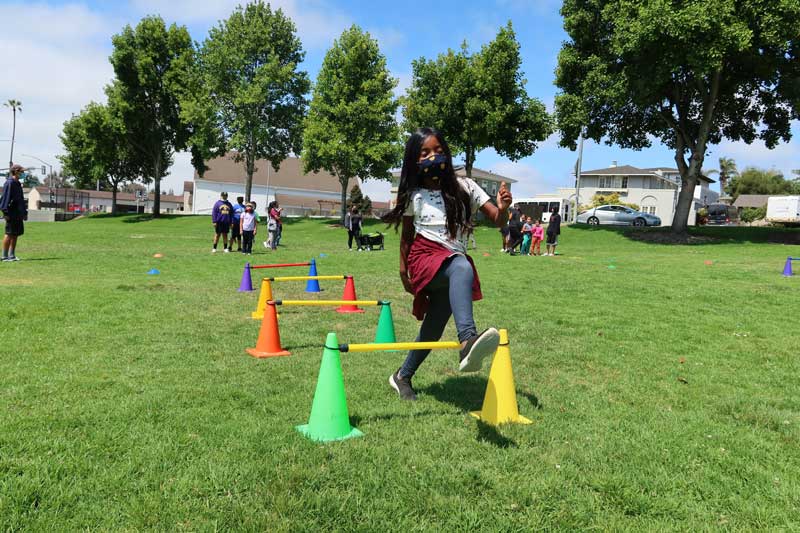Watsonville voters will have yet another enormous decision before them in what will likely be a critical election and moment in the city’s history.
The Watsonville City Council at its Tuesday night meeting placed a half-cent general sales tax measure on the Nov. 8 ballot that would raise the city’s sales tax to 9.75%—the most the municipality is allowed to tax its residents.
City staff is pitching the tax—and the estimated $5 million that it would bring in annually—as a way to infuse the Parks and Community Services Department with more funding and better upkeep of distressed city roads.
But as a general tax, there is no guarantee that the funds will be used for those efforts. Ultimately, the city council will determine how the city will spend the added revenue on an annual basis.
The council was split on putting the item before voters. Mayor Ari Parker and Councilmember Jimmy Dutra cast dissenting votes, saying that Watsonville voters would likely not support taxing themselves further during the current cloudy economic period.
“As much as I support this because I think that we need the funding here in our community, is this the right time?” Dutra asked. “We’re in the middle of a pandemic where people are really struggling and inflation is high.”
Parker highlighted the fact that several residents in her district just a few weeks ago made the decision to accept an assessment on their annual property tax bills in order for the long-awaited Pajaro River levee renovation project to proceed.
“We have people who live paycheck to paycheck. We have people that live on social security. I love everything that you guys said and I know we need it, but I just don’t trust this particular time and place to put this into the works,” Parker said.
But other council members said that the additional revenue would allow the city to better support its residents and offer young people services and outlets that are largely lacking today.
“The point of this tax is to give [voters] the option to tax themselves for the greater good, and, in this case, the greater good is the future and the youth of our community,” said Councilmember Francisco “Paco” Estrada. “Here we have an opportunity to change our history. To do something different. To end the status quo. And I think now is the time.”
Added Councilmember Vanessa Quiroz-Carter: “I hear the concerns. There’s never going to be the right time. People don’t like to pay taxes. Who likes to pay taxes? But at the same time, these are dire needs in our community that we’ve seen time and time and time again. I’m 35 years old. All of these things have needed to be funded for longer than I’ve been alive.”
It will cost the city between $55,137.50-$88,220 to place the item on the ballot.
It will be part of a long list of items before Watsonville voters in November.
Along with the sales tax, four city council seats will be up for grabs, and a new 4th District Santa Cruz County Supervisor will be crowned—Dutra and former Watsonville Mayor Felipe Hernandez are set to square off in a runoff for the seat currently occupied by Greg Caput. In addition, Watsonville voters will determine if current outward growth restrictions approved in 2002—better known as Measure U—should be extended through 2040.
Because of state law, the tax would not apply to essential purchases, such as groceries and medicine. The tax would also be subject to an independent citizen oversight committee, mandatory financial audits and yearly reports to the community.
If approved, it would last until repealed by voters.
As a general tax, it only needs a simple majority vote for approval.
In a survey of 486 likely Watsonville voters conducted by a consultant in February, 68% of respondents said that they would support a general sales tax measure.
The survey was conducted to gauge the community’s interest in providing more money to Watsonville’s Parks Department. Along with having a dearth of park space within city limits, the department also has more than $20 million in deferred maintenance costs at its current 148 acres of park space.
The city council at Tuesday’s meeting also approved a $5.7 million budget for its Parks Department.
In a hypothetical plan of how the $5 million of additional revenue would be spent should the measure pass, the city said that $2.5 million would go to street, road and park renovations; $1.45 million would be set aside for youth and teen afterschool, summer and prevention programs and programs for families and seniors; $700,000 would be allocated to playground and trail maintenance; and the remaining could go to library programs and services.
“This potential tax measure could really help us move some of these goals that we have forward in hyperspeed ways that would otherwise take almost generations to make progress on for our community,” Parks Department Director Nick Calubaquib said.













